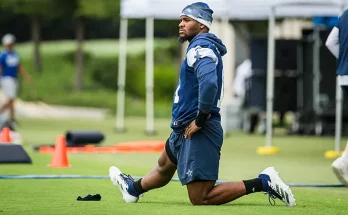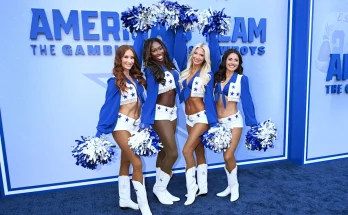Not even Arch Manning knows when he’ll leave the Texas Longhorns for the NFL, and that fact alone has become one of the most fascinating storylines in all of college football. When Arch Manning, the nephew of Peyton and Eli and grandson of Archie, committed to Texas in June 2022, the college football world buzzed with speculation about how quickly he would ascend from prized recruit to NFL-ready prospect. Many assumed that the Manning name alone, combined with his elite talent and pedigree, meant that his path would be as short as possible: three years at Texas before heading straight into the NFL Draft. But as he enters another season with the Longhorns, the future is not so clear, not to fans, not to analysts, and not even to Arch himself. This uncertainty tells us a lot about the modern landscape of college football, the unique pressures of being a Manning, and the evolving decision-making process for star quarterbacks.
From the very beginning of his career at Texas, Arch Manning was under a microscope unlike almost any other recruit in recent memory. Rated as one of the top prospects in his class and the crown jewel of Steve Sarkisian’s recruiting efforts, his arrival was seen as a turning point for the Longhorns. Texas football had been trying to reestablish itself as a true national powerhouse, and the Manning commitment was both a signal of intent and a reassurance that the Longhorns could still attract the most elite players in the country. Yet, unlike many five-star quarterbacks, Arch walked into a quarterback room that already had a talented starter in Quinn Ewers. That alone complicated the timeline. Instead of being handed the job immediately, Arch has had to wait, learn, and develop, and that waiting has inevitably pushed back the certainty of when he might declare for the NFL Draft.
Some fans expected Manning to redshirt, learn for a year, then seamlessly take over once Ewers moved on. But football has never been that predictable, and the Manning family knows this better than most. Peyton stayed at Tennessee all four years, developing into the number one overall pick in 1998. Eli spent five years at Ole Miss, redshirting as a freshman before playing four full seasons and becoming the first overall pick in 2004. Even Archie, the patriarch of the Manning quarterback dynasty, played three seasons at Ole Miss before entering the NFL in an era when things were very different. Their careers stand as reminders that timelines are not one-size-fits-all, even for the most gifted players. Arch has the same last name, the same bloodline, and the same talent, but his path is uniquely his own.
Part of the uncertainty comes from the fact that the NFL Draft eligibility rule is so simple yet so defining. A player must be three years removed from high school graduation to declare, meaning Arch Manning could enter the 2026 NFL Draft at the earliest. But “could” is not the same as “will.” Declaring for the draft is not just about eligibility, it is about readiness, both on the field and off it. The decision also depends heavily on draft stock projections. Some players jump at the chance to declare early if their stock is high enough, while others wait, betting that another year of development and experience will move them up the draft boards and increase their long-term financial and football opportunities.
For Arch, the Manning family is likely to take a cautious, calculated approach. They have always been deliberate in their football decisions, and the family understands the weight of expectation that comes with being a first-round NFL quarterback. If Arch were to rush into the league before he was fully ready, the scrutiny would be far harsher than it would be for an ordinary prospect. That pressure alone makes it more likely that his departure from Texas will be on a timeline that balances his own readiness with the team’s needs and the family’s long-view philosophy on careers.
What complicates matters further is the current state of college football itself. With the transfer portal and NIL (Name, Image, Likeness) money reshaping the sport, there is no longer the same level of urgency for players to leave school early. At one time, going pro as soon as possible was the best way for a player to maximize earnings, but that has changed. Arch Manning, even before stepping on the field as a full-time starter, has already built a marketable brand that allows him to make significant money while in college. NIL deals have given players like him the financial flexibility to make career decisions based more on development and football circumstances than immediate income. That freedom could easily mean Arch takes his time at Texas rather than rushing into the NFL just because he’s eligible.
For Texas fans, this all creates a fascinating dynamic. They know that having Arch Manning means every game, every season comes with national media coverage and speculation about his future. At the same time, they also know that the longer he stays, the better their chances are at competing for Big 12 or SEC titles and potentially the College Football Playoff. Arch sticking around for four years instead of three could be the difference between Texas cementing its return to prominence and continuing to live in the shadow of other powerhouse programs. His decision is not just personal, it has ripple effects across the entire program.
It’s also important to consider Arch himself and his personality. Unlike many high-profile recruits, Arch has always shied away from excessive spotlight. His family kept his recruitment relatively low-key, limiting interviews and avoiding the kind of hype videos that have become common for top players. He has consistently focused more on his teammates and development than personal accolades. That approach suggests he may not be in a rush to declare for the draft the first chance he gets. Instead, he might prefer to ensure he’s completely comfortable as a starter, a leader, and a polished quarterback before making the jump to the NFL.
Still, the NFL will always loom large. Teams are already salivating at the thought of drafting another Manning quarterback. Front offices and scouts are undoubtedly tracking his progress closely, knowing that even if he takes longer to develop than some expect, the potential ceiling is extremely high. The NFL is a league that prizes quarterback talent above all else, and Arch will inevitably be one of the most scrutinized prospects of his generation whenever he decides to enter. That scrutiny will only intensify as the years pass, and every throw he makes at Texas will be dissected for what it might mean for his pro potential.
The truth is, not even Arch Manning knows the exact moment he will decide to leave Texas for the NFL, and that is perfectly normal. College football is a fluid, unpredictable environment. Injuries, team success, coaching changes, and personal development all play roles in shaping when a player makes that leap. For Arch, the decision may come after three years if everything aligns perfectly: if he becomes the starter quickly, performs at an elite level, and feels mentally and physically ready. But it could just as easily come after four years if he wants more seasoning or if Texas is in the middle of a special run that he wants to see through.



